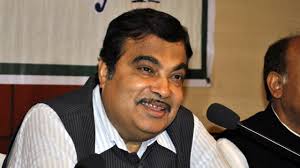In a major initiative to encourage and enable holistic progress in the incubator ecosystem across the country, NITI Aayog’s Atal Innovation Mission (AIM), has launched AIM iCREST – an Incubator Capabilities enhancement program for a Robust Ecosystem focused on creating high performing Start-ups. This is a first of its kind initiative for advancing innovation at scale in India.
AIM has joined hands with Bill & Melinda Gates Foundation and Wadhwani Foundation - organizations that can lend credible support and expertise in the entrepreneurship and innovation space. These partnerships will provide global expertise and showcase proven best practices to the AIM's incubator network.
AIM iCREST, as the name suggests, has been designed to enable the incubation ecosystem and act as a growth hack for AIM’s Atal and Established incubators across the country. Under the initiative, the AIM’s incubators are set to be upscaled and provided requisite support to foster the incubation enterprise economy, that will help them to significantly enhance their performance. This will be complemented by providing training to entrepreneurs, through technology driven processes and platforms.
The program aims at going beyond incubator capacity building. Given the current pandemic crisis, the effort will focus on supporting start-up entrepreneurs in knowledge creation and dissemination as well as in developing robust and active networks.
Mr Amitabh Kant, CEO, NITI Aayog, sharing his views said, “We firmly believe that the Indian startup ecosystem has evolved into truly world-class movement. NITI Aayog shall play the role of a catalyst in making it happen. India has a great opportunity in its inherent innovative mindset to capture global markets while creating disruptive solutions for the challenges within the country. In order to facilitate an AtmaNirbhar ecosystem that is capable of nurturing such disruptive start-ups, AIM, NITI Aayog is enabling this partnership with Bill & Melinda Gates Foundation and Wadhwani Foundation. We are positive it will propel our portfolio to become #WorldClassIncubators and reach greater heights.”
Sharing his views, Mr Ramanan Ramanathan, Mission Director, AIM said, “India needs world class incubators fostering world class startups leveraging the tremendous innovation talent of our country. For the first time in the Government, the Incubator capacity development program is being extended to the entire portfolio of supported Atal incubators. This programme is unique also in its design - it is a combination of interactive practices in the field of incubation; enabling the incubators to support sustainable and successful startups. We are pleased to announce the partnership with Bill and Melinda Gates Foundation and Wadhwani Foundation supported by NEN.”
Ms Anjani Bansal, Deputy Director, Bill and Melinda Gates Foundation said, “We are thrilled to support this initiative of Atal Innovation Mission and NITI Aayog to nurture an ecosystem that enables development and scale up of innovations to solve problems with far reaching impact. Such innovations in technologies and business models can contribute, both incrementally and radically, to the foundation's goals of improving maternal and child health, increasing productivity and income of small farmers, increasing access and usage of digital financial services, and improving livelihoods for women. The large network of incubators under AIM-iCREST program also enables us to deliver this program at scale which is particularly exciting.”
Mr Ajay Kela, President, and CEO, Wadhwani Foundation, added, “The Wadhwani Foundation is honored to partner with Atal Innovation Mission (AIM) and Bill and Melinda Gates Foundation to help accelerate and scale Startup success in India. The partnership brings decades of experience and global best practice integrated into a comprehensive platform delivered through AIM iCREST. The program will contribute to much needed economic and job growth in these challenging times”.
Mr Dan Kranzler Senior Advisor to Wadhwani Foundation and lead trainer of iCREST program added, “Teams from AIM iCREST, Wadhwani Foundation, and the leading incubators of India are all excited to engage together to advance outcomes to create increased economic and job growth. The unique nature of the content, programs, toolkits, resources, and best practices from over 200 global incubators work seamlessly in a digital model to ensure continuity of the program in the midst of the COVID-19 restrictions”.










